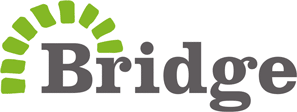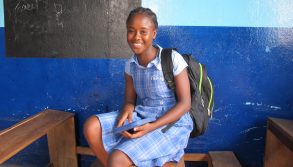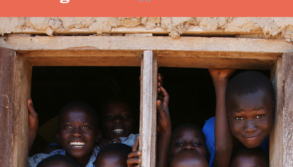The role of private actors in supporting learning worldwide
30 October 2017
In the field of education, the UN’s Millennium Development Goals ushered in a new era of opportunity through access. New school buildings were built, new teachers hired, and in some regions like South Asia, more children are attending school. Despite this seemingly good news, an enormous global challenge remains in creating quality education for all children: yes, more children are in school, but many of those children are not learning anything at all.
According to the UNESCO Institute for Statistics, 387 million children of primary school age worldwide, or 56%, still did not meet minimum levels in reading in recent tests. In sub-Saharan Africa, where the problem is especially acute, 41% of primary school age children do not complete primary school, while 87% of children do not reach minimum proficiency levels in reading even if they do attend school.
These troubling truths can be a rather cold and quantitative way of talking about individual children who are still waiting and hoping to learn, each with profound potential and big dreams. They are at the centre of UNESCO’s recently released Global Education Monitoring (GEM) Annual Report, entitled “Accountability in Education: Meeting our Commitments.” The report explores different streams of responsibility and accountability – governments, teachers, communities, private actors, and students. UNESCO notes:
“It is clear education systems are off track to achieve global goals. The marginalized currently bear the most consequences but also stand to benefit the most if policy-makers pay sufficient attention to their needs. […] The report emphasizes that education is a shared responsibility. While governments have primary responsibility, all actors – schools, teachers, parents, students, international organizations, private sector providers, civil society and the media – have a role in improving education systems.”
Bridge is a partner to governments across Africa and India in implementing affordable schools, infrastructure partnerships, and free, government-led public-private partnership schools, and we welcome this focus on accountability. The report rightly shows that education delivery ultimately rests with governments and that a supportive environment based on “building” instead of “blaming” helps all education providers fulfil their responsibilities.
As the report notes, “accountability” is a concept linked to responsibility, but with a key element of “accounting” – of keeping track of, monitoring, and attributing changes to a responsible party. At the core of accountability is the question of accountability for whom, for what input, for what output, and with what consequences.
At Bridge, we think of accountability in very clear terms: governments are and should remain the primary point of accountability and responsibility. And at Bridge we have demonstrated how we help support governments with this:
- We are accountable– for educating over 250,000 children around the world, in five countries to date.
- Our tools are many – teacher training, new lesson materials, printed textbooks, teacher guides delivered on technology, monitoring and supervision of schools, and professional development for teachers.
- Our outputs are also varied – teacher attendance, student attendance, teacher satisfaction, enrollment, and many other measures. However, these outputs all boil down to one core outcome: student achievement, a measure of how much better our students perform academically as a result of going to Bridge.
- If we do not achieve strong student achievement outcomes, we expect clear consequences– a scaling down of our work through parents choosing alternative schools for their children.
The evidence to date has shown that Bridge achieves ambitious, unequivocal student achievement gains, and is being asked to “scale up.” Parents want to send their children to Bridge schools because their children perform better there, and governments want to work with Bridge and open more Bridge schools because they create opportunities for a quality education that is not available elsewhere.
Unfortunately, this narrative of our work reflects two key accountability elements conspicuously undervalued in UNESCO’s GEMs report: learning performance incentives and parent school choice.
At Bridge, we care about how much our children are ultimately learning, and expect to be judged, scaled, and supported – or not – by this critically important metric. Remaining accountable to a clear metric of improved pupil performance growth keeps us focused on our “north star” of creating schools that deliver quality education for children. To lose sight of learning performance, or to waver on its centrality in defining success, is to lose focus on the outputs for which we are accountable, and to render toothless any attempts at real accountability for real outcomes.
In a similar vein, at Bridge, we view parents as partners and the most important advocates for education. Parents should be able to choose an educational option that is right for their family, especially when they see that the existing options may not create opportunities for achievement for their children.
This statement is obvious in the developed world, where parents often advocate for changes in their schools, and where some parents may exercise choice. At Bridge, we believe parents in the developing world deserve the same rights and ability to choose where their children go to school. Indeed, over 250,000 parents to date have chosen to send their children to Bridge. Such parental choice is a key way of holding all schools accountable, and a key consequence if schools do not achieve performance gains for children.
UNESCO’s GEM report is right that accountability in education is critical and complex. However, without the inclusion of these two key concepts – incentives for student performance outcomes and parental choice – any conversation about accountability risks becoming empty or dis-empowering for parents.









